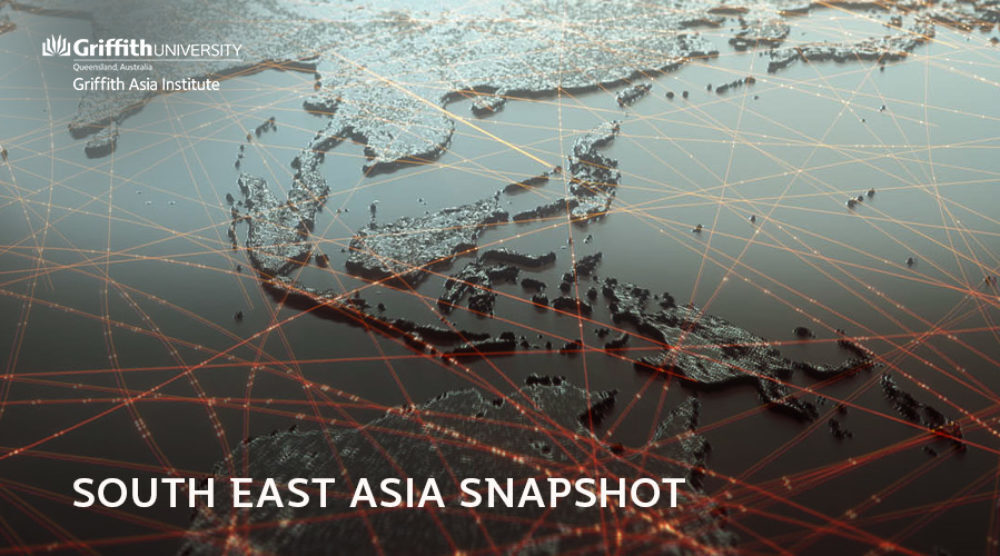Australia’s Foreign Minister visits South East Asia to strengthen ties
Vietnam, Malaysia, Indonesia, and Singapore warmly greeted the newly appointed Foreign Minister of Australia, Penny Wong, for her official visit to Southeast Asia in late June and early July. The visits were an effort to strengthen “genuine links” between Australia and its neighbours.
The Strategic Partnership commitment between Vietnam and Australia was affirmed during Wong’s visit. Both sides aimed to promote tourism, education, and people-to-people exchange in the post-COVID-19 world. Vietnam’s top ministers met with Wong and praised the strong cooperation between the two nations in all aspects, especially in the fight against COVID-19. The Vietnamese delegation urged for continuous cooperation between the two countries in the Mekong region and sought to maintain Australia’s Official Development Assistance in Vietnam.
After Vietnam, Wong continued her official visit to Malaysia. The top Malaysian ministers and the Australian foreign minister confirmed the two countries’ commitment to strengthen relations. However, Malaysia expressed concerns over Australia’s nuclear-powered submarine deal under the AUKUS which could lead to an arms race among great powers in the region. Despite that, Kuala Lumpur and Canberra pledged to increase trade and cooperation in cybersecurity to further strengthen people-to-people relations. The visit was made more poignant given Malaysia is the birthplace of Penny Wong. It is widely believed that this can serve as a means to enhance their bilateral relations and promote Australia’s soft power in Malaysia.
During her trip in Singapore, Wong contended that Australia’s security was intrinsically linked to the security of Southeast Asia. Being Australia’s fifth largest trading partner, Singapore has served as a connecting trade route for Australia’s supply chain. Both ministers aimed for closer cooperation on the Green Economy Agreement (GEA) which aims to reduce non-tariff barriers to boost green and environmental-friendly technology to combat climate change.
After Singapore, Wong flew to Indonesia for the G20 Foreign Minister Meeting. During the Summit, Wong met with her Indonesian counterpart for a bilateral meeting that focused on Indonesia’s G20 Presidency, Russian military aggression in Ukraine, and the current situation in Myanmar. Both ministers agreed to push for inclusive diplomatic dialogue and democracy while Wong also raised concerns regarding China’s relationship with Australia.
Wong’s Southeast Asia trip has reaffirmed to some that Southeast Asia is strategically important to Australia. Despite disagreements on certain issues, it seems that Canberra will continue to invest time and resources in the region. Others, however, argue that Australia’s soft power diplomacy will not translate among the elites in Southeast Asia that are pushing for both a stronger democratic system and adherence to human rights throughout the region. Fundamentally, however, the visits signal the region as a priority in Australia’s current foreign policy.
Vietnam allows 50% environmental tax cut on fuel to curb inflation
On 6 July, the National Assembly of Vietnam approved an initiative to cut tax on fuel by 50% to control the rising energy prices and curb inflation. This is the second time in three months that Vietnam has imposed a tax cut regulation in an attempt to keep the inflation rate below 4%.
This new regulation will be in effect from 11 July until the end of 2022 to push back the costs of energy for transportation in Vietnam which rose by more than 21% last year. The cut would reduce the tax on gasoline to USD 0.04 per litre while the tax on diesel would be cut to USD 0.02 per litre. The tax on kerosene would be kept at USD 0.013 per litre while the jet fuel’s tax will be cut to USD 0.04 per litre.
The Vietnamese Finance Ministry reiterated that the tax reduction, if combined with the previous cut, would result in almost a USD 1.4 billion fall in the national budget in 2022. Further, the President of the Vietnam Petroleum Association urged the Vietnamese ministry to decrease the tariff for Vietnam’s most-favored nations (MFNs) from 10% to 8% and to strengthen the country’s energy trade.
The new tax regulation will, undoubtedly, result in less national revenue. However, the government has prioritized the prevention of inflation to curb rising consumer prices in hopes of stabilising the Vietnamese economy in the long run.
Thailand passes a bill on voluntary chemical castration for sex offenders
On 12 July, the Thai Senate passed a bill that enables voluntary chemical castration for sex offenders in exchange for a shorter prison sentence in an attempt to combat sex crime in Thailand.
The bill was passed with a 145 – 0 vote in the Thai senate with two abstentions and will now need approval from another house and the royal endorsement before becoming law. Under this bill, sex offenders are given an option to receive injections that will lower their testosterone levels in exchange for the reduction of their imprisonment period. Afterward, they will be monitored for 10 years with the requirement to wear monitoring electronic bracelets.
The Thai Justice Minister wanted this law to be passed quickly, citing the safety of women who can easily fall into victims of sex crime as a priority. However, some believe that this approach would not reduce the crime in Thailand as the offenders could be trained to change their psychology and mindset through rehabilitation in prison. Others even believe that castration will lead to more violence against women as the offender may develop misogamy and start harming girls instead out of revenge or hatred. With nearly 5,000 cases of sexual crime recommitted from 16,413 cases between 2013 and 2020, the Thai government is struggling to prevent such crime. This approach is an attempt to curb reoffending rates, but the success of the initiative must be observed over the coming years.
Sovinda Po is a Research Assistant at the Griffith Asia Institute.








